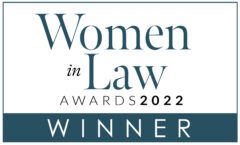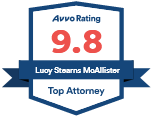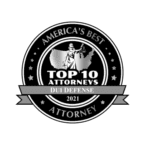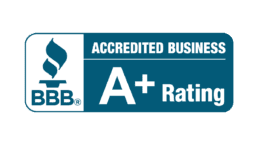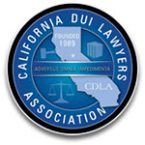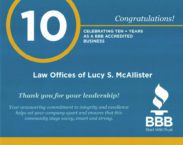There are many factors that can affect your nursing license, one of which is a criminal conviction. Conviction records show up on state nursing boards with convictions anywhere from felonies to misdemeanors. Failure to disclose a conviction can affect your license to practice as a nurse and lead to a suspension or revoking of your nursing license. This article will help you determine how your nursing license would be affected by a criminal conviction. It also discusses strategies for protecting yourself from being convicted.
What Kinds of Criminal Charges Affect Your Nursing License?
A nursing career can be ruined by a single wrong decision. The following criminal acts can jeopardize your nursing license:
- DUI
- Substance abuse
- Deficient record keeping
- Failure to pay your state taxes
- Failure to get fingerprinted
- Disclosing patient information on social media
- Failure to meet an acceptable standard of care
- Violating the Health Insurance Portability and Accountability Act (HIPAA)
Determining if a crime you were involved in will affect your nursing license can be challenging. A threat against your nursing license, after everything you sacrificed to obtain it, takes a heavy emotional toll. Understanding what factors the nursing board will consider after your conviction can help you better gauge where you stand.
Factors That Are Considered Following a Conviction
Whether or not a conviction will affect your license (and how) is determined by several factors such as:
- The seriousness of the crime, i.e., was it a felony, misdemeanor, or an infraction.
- If this is your first conviction.
- The length you have had your nursing license.
- Whether or not you were arrested and charged.
- What transpired after your conviction.
- If you failed to report the conviction.
- Your prior disciplinary record.
- If your action caused potential/actual harm to the public.
- How long it has been since the crime was committed.
- Your steps for rehabilitation.
Disciplinary Action Following a Conviction
Acquiring legal counsel from a professional license defense attorney can help lessen the penalties for your conviction. While a dismissal of charges is unlikely, other possibilities for discipline include:
- Public reprimand letter is linked with your RN license number on the BRN’s records.
- Plea for fee reduction can lead to a reduced cost.
- A fine and citation will be issued that is not placed on the BRN’s website.
- A rule out of provision is made, reducing the probation requirements.
- License suspension or revocation may occur in more serious cases.
When is It Necessary to Report a Conviction?
The Board of Registered Nurses (BRN) requires that you report any infraction, misdemeanor or felony that carries a fine over $1,000. If the crime did not have a penalty fine of this amount, you do not need to report the incident to the BRN unless the infraction involved alcohol or a controlled substance. However, any conviction that is set aside pursuant or deferred pursuant to Section 1000 or 1203.4 of the Penal Code must be disclosed.
Protect Your License by Reporting Your Conviction
Nurses who are convicted in any way should make sure they report this information to the California Board of Registered Nursing. Misdemeanor, DUI, and substance related convictions must be reported as well as court ordered rehab programs for drugs or alcohol abuse.
Nurses who fail to report their convictions will face heavy punishments. The California BRN is informed if fingerprints of a convicted person match one of the nurses on file. Failure to report a conviction to the California BRN can result in probation, suspension, or loss of license.
If you’re a nurse, the revocation of your license could be a huge blow to both professional and personal aspirations. Engage a professional license defense attorney when confronted with criminal allegations or charges that put your nursing license at risk. Lucy McAllister Licensing Law has over three decades of legal experience representing the needs of her clients and defending their professional licenses. Contact us today at (877) 280-9944 to learn how we can help!
How Can Your Medical License Inquiry Lead to Criminal Charges?
It can be disturbing to receive notification from your California professional licensing board or authority that they are launching an investigation on you. But did you know this could also have serious consequences in terms of criminal charges? Read on to learn how this can happen and how to prevent it with a legal professional.
Complaints and Investigations
The Medical Board of California, the Department for Consumers Affairs, and other regulators are constantly on high alert. They monitor licensing practices to protect patients from unqualified professionals who might harm them or take advantage during stressful times when people need care most.
Nurses are often the first responders in any given hospital and frequently take the first hit from those who claim they had a negative care experience. The nursing board gives feedback through channels like websites where people can file formal written requests if they feel disadvantaged during patient-provider relationships or in matters between employees.
Complaints to nursing boards arrive from a variety of sources. Patients, coworkers, random citizens, and employers can enlist the board of nursing to investigate a medical practitioner by issuing complaints in writing or completing a board of nursing Website complaint form.
When a nursing board receives a complaint, they first confirm that the nurse or medical practitioner mentioned is licensed in that state or jurisdiction. They also ensure that the complaint is governed by the laws and regulations of that state. While these licensee investigations rarely involve criminal behavior, if they do it is essential to talk to an experienced license defense attorney with a criminal law background before talking with anyone else to protect yourself and your license to practice.
If you fail to respond to a nursing board inquiry it can lead to a default judgment or disciplinary action, and possible permanent revocation of your license.
The Powers of Licensing Boards
The same laws that create a license create a licensing board to keep the profession in check. Occupational practitioners from inside the industry are often recruited to these boards to provide insight and perspective. In California, licensing board authorities have been given enforcement powers that require them to follow through on investigations. A licensing case investigation is assigned to an Attorney General and the board investigator’s report becomes evidence in the legal report.
Partner with a Licensing Lawyer
If you receive an accusation for criminal charges, the absolute first thing you should do before talking to any DCA investigator is to partner with a skilled license defense attorney. Legal experts are familiar with your laws and rights as a medical practitioner. In cases like these, you need someone who can safeguard both you and your license and prevent criminal charges or an arrest from occurring.
For over three decades, the Law Offices of Lucy S. McAllister has been defending professionals in California against criminal charges and with license defense. Our track record speaks for itself. We’ve appeared 250 times before Superior Court judges with rigorous defense strategies. Contact us today at (877) 280-9944 to learn how we can help!


